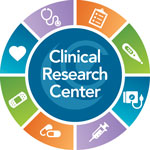By Julie Carrico, MBA, CCRC
Right now our site is enrolling patients in Type 2 diabetes and Alzheimer’s disease clinical studies. Due to our focus in these disease areas I’ve become more aware of products and services aimed at this patient population. With alarm, I’ve seen advertisements that promise to cure, reverse or completely alleviate such conditions as type 2 diabetes, memory loss, and joint pain, . I’m especially alarmed that this type of advertising plays on the fears of a vulnerable population.
I encourage everyone to perform due diligence when tempted to fall for one of these “cure-alls.” It doesn’t take a ton of effort.
For example, a quick check on the internet of a product claiming to reverse diabetes found the following:
The “Dr.” promoting the product is a chiropractor. FYI, chiropractors diagnose and treat neuromuscular disorders, with an emphasis on treatment through manual adjustment and manipulation of the spine. They are not medically qualified to manage diabetes.
The “product” being sold is an intense and expensive diet program.

A testimonial from a patient who was “cured” to the point of stopping all diabetes medications was featured prominently. The reason the patient was “cured” is simple: some patients are able, through diet and exercise, to temporarily eliminate the need for diabetes medication(s). I say “temporarily” because diabetes is a progressive disease. The patient was not cured, and should the patient live long enough diabetic medications will likely be required again. While the weight loss for this patient is commendable and certainly a great step toward better health, the patient will need to be closely followed by their primary-care provider to monitor diabetes.
Another product that seemed dubious to me is an over-the-counter supplement promising to “improve memory and concentration.” The makers of the product claim to have done multiple randomized, double-blind, placebo-controlled studies that were published in respected peer-reviewed journals. Quick internet recon revealed that the studies were all published between 2004 and 2009 by the same two or three authors with unknown credentials in one country outside the US. In very small print at the bottom of the ad was the standard disclaimer for these types of supplements: “These statements have not been evaluated by the Food and Drug Administration. This product is not intended to diagnose, treat, cure or prevent any disease.” I would hazard to say that if the effects of the supplement were as dramatic as the advertising claimed, clinical trials seeking FDA approval would have been done in the US.
The third product I explored is a pill to relieve joint pain. According to the advertising, the pill has been available in Europe for over 50 years but a “limited supply” is now available in the US. It turns out the main ingredient is glucosamine, which is most definitely not in limited supply in the US!
In conclusion, please use good common sense when looking at products with claims to eliminate or reverse diseases and the subsequent need for medication(s). If it’s too good to be true, it probably is too good to be true.
The Clinical Research Center is currently seeking volunteer patients in studies for Alzheimer’s disease and Type 2 diabetes.
If you are interested in learning more about clinical trials, contact the Clinical Research Center at 541-766-2163, or send an email to research@corvallisclinic.com or fill out our Research Study Information Request form. And, don’t forget to follow us on Facebook at https://www.facebook.com/corvallisclinicresearch.
– Julie Carrico is Associate Coordinator of The Corvallis Clinic Clinical Research Center and a Certified Clinical Research Coordinator
